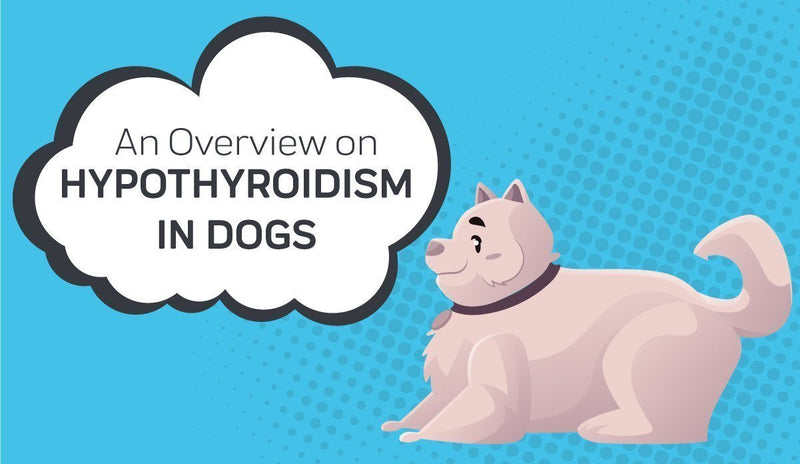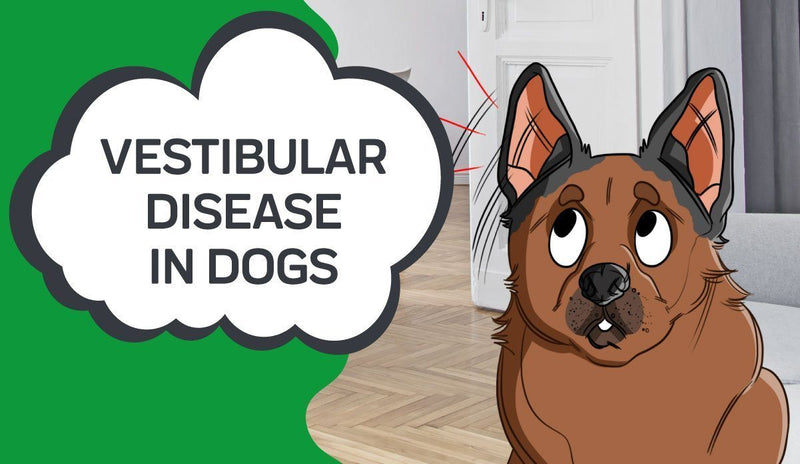
When you hear the phrase intestinal parasites, instinctual response is to shiver with disgust and say, without thinking, “That will never happen to my dog!” The thing about intestinal parasites is that there is no way of knowing if they are going to arise and cause an infection for your dog, let alone you.
While we always hope that our pets will stay safe and healthy for their entire lives, we can never fully know what is in the cards. For this reason, we should always be prepared for just about anything, and that includes internal parasites in the intestines. But what should you do if you suspect your dog has a parasitic infection?
These scenarios are far more complicated than a sinus infection that goes away on its own. When it comes to parasites, far more factors are involved, but don’t let your heartbeat out of your chest. Internal parasites are curable, and your dog is in good hands with an owner like you!
How Many Internal Parasites are Commonly Found in Dogs?
Intestinal parasites are not a rare occurrence for dogs, no matter the breed or age of the pup in question. Beyond intestinal parasites, dogs face a high probability of contracting parasites that imbed themselves in various internal organs as well.
Also, the problem with parasitic infections is that they do not prey on any one type of dog. Instead, intestinal parasites enter the systems of any dog and make it work in their favor. For that reason, contracting a parasitic disease is not something that certain dog breeds experience more than others.
Are you concerned that your dog has intestinal parasites? Do you want to learn how to handle an instance in which your canine companion falls ill with some sort of internal parasitic infection? Just to clear up any confusion on your end, we suggest that you take a look at a few of the more common cases of internal parasites for dogs.
Though you should always contact a veterinarian and seek professional feedback from a trusted vet, there is a level of peace of mind that comes with looking into your pet’s overall health on your own. Feel free to research more in-depth about the symptoms and causes of intestinal parasites in dogs, but always remember that a trip to the vet is more advantageous than trying to diagnose your pet and treating them without professional advice.
Here are five of the most common types of parasites that infect dogs…
- Tapeworms
- Giardiasis
- Hookworms
- Whipworms
- Roundworms
Tapeworms
When dogs develop a case of tapeworms, they begin to experience pain in their gut region. Although tapeworms pass, they are not often deadly for canines. However, dog tapeworms are an example of parasitic infections that can affect humans, too. Called nootropics, these cases are far more dangerous for people who are infected by them.
For dogs, tapeworms cause an array of problems. From excessive weight loss despite a heightened appetite, and changes in the bowel movements of your pup, to a potbelly and an oddly high occurrence of scratching themselves, dogs are very negatively affected by tapeworms.
Giardiasis
Otherwise known as beaver fever, giardiasis is an an illness that originates in water. As a waterborne disease, giardiasis is caused by an infection of giardia, which is a parasite that entered your dog's body and feeds off of it in order to stay alive. Parasites are scary because they act as though your dog is a host and they are invited to stay for as long as they would like.
The reality of the fact is the your pupper did not invite the parasite to use its body as an energy source, but that difficult reality doesn't stop giardia. Rather, giardia introduces itself to your pup's intestinal system and remains lodged in the intestines until action is taken to rid your dog of the awful situation. A stool contaminated by the bacteria, giardia, is dangerous for a few months, on average, and this is after a dog has excreted the parasite.
Hookworms
By definition, hookworms are parasites that make a home out of your canine's digestive system. When hookworms infect your dog's internal organs, they grab hold of your puppy dog's intestines. From there, hookworms use the blood of canines as their energy source. While hookworms are feeding off of your dog's body, they reproduce and emit their eggs into the digestive tract.
At that point, your dog will excrete the eggs of the parent hookworms and spread by way of environmental factors. When other dogs smell or touch the poop of fellow canines, the eggs of your pup’s hookworms will latch onto the fur of the other dogs and infect them. The cycle continues as hookworms reproduce, become excreted, and attach to other dogs. The biggest problem with hookworms is their tendency to feed off of the blood of the dogs to which they attach.
Hookworms can be compared to leeches in the sense that hookworms use dogs as a feeding source. Obviously, this results in blood loss, because hookworms begin to feed off of your dog’s blood source at a rate that is far too fast for your dog with withstand.
Whipworms
Whipworms in dogs originate in the intestines of canines. More specifically, whipworms make themselves comfortable in large intestines. The most jarring aspect of whipworms is how long they manage to stay alive. As a pathogenic worm, whipworms lay eggs that have the natural superpower of existing for a minimum of five years, once introduced to an environment.
However, this is not to say that one whipworm egg is capable of infecting your dog for that length of a period. Rather, whipworm eggs are only dangerous for about two months, meaning they are only infectious for the first eight weeks of embryonate stage in the life cycle.
Roundworms
Last but not least, roundworms are a parasite found in the intestines of canines. Roundworms target the intestines of dogs primarily because these organs are the most suitable for staying alive and reproducing, in an attempt to further infect the population of dogs around the world.
Roundworms are a lesser known intestinal parasite, but oddly enough, they are the most common reason behind canine intestinal parasite infections. The lack of high-end popularity does not make roundworms any less vicious or commonplace, either. In fact, it is estimated that just about every dog will have an encounter with roundworms at some point in their lives. Roundworms infect dogs with ease, meaning that these parasitic monsters are very sly and therefore hard to avoid.
Can Humans Contract Intestinal Parasites Just Like Dogs?

Nobody likes to talk about pooping, but the unfortunate truth of the matter is that intestinal parasites are transferred from one dog to the next by way of stools. This is concerning on its own, seeing as dogs use the great outdoors as their bathroom, so all a dog has to do is come in contact with an infected stool while out for a walk one day, and just like that, their risk of contracting intestinal parasites skyrockets.
Now, you might look at a scenario like that and think, “Well, it’s very unlucky, but it makes sense.” And you’re right. It sure does make sense. Dogs sniff their environments like it’s a hobby and it’s not shocking to hear that a dog can pick up some sort of disease from the outside world. However, are you surprised to learn that humans can contract intestinal parasites from the excretions of dogs, too?
See, intestinal parasites are zoonotic, meaning that they are transferable between animals and humans alike. Oftentimes, diseases and infections are only contagious between species, so if a human has a cold, another human being could become ill after catching it from the human who had a cold in the first place. Likewise, dogs can spread illnesses between each other, as can cats and horses, to name a few more animals. But it’s quite rare that a health condition can be shared among animals and humans.
More often than not, cases of zoonotic illnesses, or zoonoses, originate with animals and become contracted by humans. It is rare that the opposite is true, though it’s definitely possible.
Intestinal parasites are one example of diseases animals carry that we are not safe from, with other zoonoses including…
- Lassa fever
- Lyme disease
- Salmonellosis
- Toxoplasmosis
- Rabies
- Brucellosis
- Echinococcosis
- Listeriosis
- Monkeypox
- Anthrax
- Typhus fever
- Psittacosis
- Ascariasis
- Trichinosis
- The West Nile fever
If you are at all concerned about contracting any of these diseases, there are vaccine schedules for pets that you can get for many of them as a preventative measure. As a reminder, you cannot come down with any of the illnesses listed above unless you come in contact with dog poop, and not just any dog poop, but stools that are contaminated by the parasite that causes the disease in the first place.
With intestinal parasites, the bacteria remains potent and contagious for upwards of a few months, and this is after the parasites have exited the body of the dog in which they originated. This is, by far, the most daunting aspect of intestinal parasites because of the wide window of opportunity for a parasite to attack, leaving your dog vulnerable for months on end.
How about we put this into perspective to help you understand the situation a bit better? Let’s suppose you walk your dog in the same direction every day. This is not uncommon for dog owners because having a routine, in terms of where they walk their dogs, makes it easier and simpler. Also, dogs enjoy consistency because then they know what to expect.
So, now let’s imagine that a fellow dog owner in your neighborhood one day chooses to not take responsibility and pick up the poop of their pup during their walks. While that is frustrating behavior in the first place, it becomes even more aggravating when you consider the possibility of there being a parasite in their dog’s poop. Whether it’s an intestinal parasite or some other parasitic, infection-causing agent is irrelevant at this point because what matters is the fact that the parasite has a plethora of possible victims now.
What Are Typical Side Effects of Canine Intestinal Parasites?
Canine intestinal parasites directly affect the intestines of your dog, by definition. Even so, the symptoms of a parasitic infection in the intestinal region are not strictly confined to the intestines.
The typical side effects of canine intestinal parasites include…
- Nausea
- Vomiting
- Heat flashes
- Fatigue without other explanations
- Shaky legs when walking or running
- Decreased levels of mobility
- Increase in appetite
- Sudden weight loss
- Diarrhea or other abnormal bathroom behavior
- Bloated tummies
- A visible worm in your dog's stools
- Whimpering when pet near the stomach
Are you curious about how to treat intestinal parasites in dogs? We have more knowledge about canine intestinal parasite treatment than you could ever imagine. Though there are ways to treat intestinal parasites that involve a prescription from your doctor, parasites in your dog’s intestines do not only require
CBD is Antiparasitic: True or False?
Cannabidiol has made headlines with its possible anti-inflammatory properties, but did you know that CBD may also fight parasites? In 2015, Washington State University released their findings regarding CBD and parasites. In their concluding statement, the faculty of WSU discussed the way that the rates of parasitic worms was significantly negative in correlation with THCA.
In basic, less scientific words, this conclusion means that when THC was present, parasites were unable to reproduce and continue to populate. Not only did the researchers of the WSU study find that the introduction of cannabis to the body rid the animal of its parasitic infection, but the cannabis plant also reduced the possibility of relapse.
Returning to the question of whether or not CBD can be used as an antiparasitic, research shows that the answer is a resounding yes. Cannabidiol is a a natural alternative method for managing parasitic infections. But how does CBD help dogs with infections caused by parasites? It’s quite interesting, really. In order to explain the benefits of CBD for dogs, we should first discuss the possible natural healing properties of cannabidiol.
What is Cannabidiol?
Cannabidiol is a phytocannabinoid derived from the cannabis plant. CBD is often talked about alongside THC, primarily because they are the most sought after in terms of phytocannabinoids. That said, there is a drastic difference between THC and CBD, and that distinguishing factor is of utmost importance when it comes to cannabis for pets. If you were to only remember one detail about CBD and THC, it should be that CBD is safe for dogs, and THC is not safe for dogs.
Tetrahydrocannabinol is the active ingredient in cannabis that gives the plant-derived substance its psychoactive properties. Cannabidiol, on the other hand, has all of the calming and relaxing effects of THC, but without the psychotropic aspects that are so dangerous for pets. Many people enjoy the mind-altering and body-morphing reactions that coincide with tetrahydrocannabinol, but not a single dog benefits from THC in the slightest.
CBD offers such a plethora of health benefits, but for dogs with intestinal parasites, the most important factor is that cannabidiol may have the power to relieve your puppy dog from any pain associated with parasites of the intestines. The nausea caused by intestinal parasites is astoundingly brutal, and that doesn’t even take into account the physical discomfort your pup will feel as the parasites cause internal damage.
CBD cannot cure parasitic infections, but without the assistance of the natural home remedy for parasites in dogs, your canine companion may experience more pain than necessary. For inflammation relief and a pain level that is manageable at the very least, look into giving your dog CBD for internal parasites.
How Can CBD Help Pets with Intestinal Parasites
Intestinal parasites can really do a number on your pet's body. Going from constant vomiting and dry-heaving, to the other end of things in terms of diarrhea and the likes, intestinal parasites are not silent infections. Not only are the symptoms of intestinal parasites quite painful on their own, but the parasites intensify the symptoms that they cause to a very high degree. That is where cannabidiol comes into play as a reliever of parasite infection symptoms. CBD reduces the severity of the symptoms of intestinal parasites in dogs.
Where to Buy CBD for Dogs with Intestinal Parasites
If you are looking for a resolution for your dog’s intestinal parasites symptoms, look no further than Innovet and its lengthy list of CBD products. CBD for dogs are the #1 best-seller at Innovet.

One of the most popular items that Innovet is known for is the pure CBD oil, which is not only suitable for pets, but also specifically designed for them. With your dogs in mind, Innovet designs and produces an oil made from 100% cannabidiol oil from Colorado. When you shop with Innovet, you don’t have to lose sleep over any potential safety concerns. Everything about Innovet’s CBD oils for dogs with parasitic infections is triple-checked and tested for accuracy and safety.
If it’s an Innovet product, then it’s the safest. From dog treats made with hemp to CBD-infused products, Innovet has thought about all dogs under the sun. Whether your dog takes better to an oral form of CBD or an external application of CBD creams, Innovet has you covered! If you’re looking ahead to brighter days where your dog is not longer in pain from a parasitic infection, then Innovet can help your dreams come true. Give Innovet a try and get your dog on the path to recovery today!
Sources:
Gastrointestinal Parasites of DogsGiardia in Dogs
Tapeworms
Pet roundworms and hookworms

Sara Redding Ochoa, DVM was raised in north Louisiana. She graduated from LA Tech in 2011 with a degree in animal science. She then moved to Grenada West Indies for veterinary school. She completed her clinical year at Louisiana State University and graduated in 2015 from St. George’s University. Since veterinary school she has been working at a small animal and exotic veterinary clinic in east Texas, where she has experience treating all species that walk in the hospital. In her free time, she likes to travel with her husband Greg, bake yummy desserts and spend time with her 4-legged fur kids, a dog Ruby, a cat Oliver James “OJ”, a rabbit BamBam and a tortoise MonkeyMan.
Thanks for stopping by!
P.S. We Love You!
Sincerely,
The Innovet Team
Please do not ask for emergency or specific medical questions about your pets in the comments. Innovet Pet Products is unable to provide you with specific medical advice or counseling. A detailed physical exam, patient history, and an established veterinarian are required to provide specific medical advice. If you are worried that your pet requires emergency attention or if you have specific medical questions related to your pet’s current or chronic health conditions, please contact or visit your local/preferred veterinarian, an animal-specific poison control hotline, or your local emergency veterinary care center.
Please share your experiences and stories, your opinions and feedback about this blog, or what you've learned that you'd like to share with others.
















